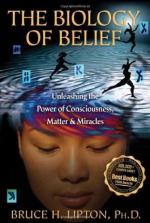|
This section contains 1,187 words (approx. 4 pages at 300 words per page) |

|
Something is conscious if there is something that it is like to be that thing. This widely accepted definition, proposed by philosopher Thomas Nagel (1974, reprint 1997 p. 519), emphasizes the subjective character of conscious experience, which is the fundamental obstacle to its scientific investigation. Scientists have no objective access to conscious states (even their own) so consciousness can only be studied scientifically by indirect means, and some believe that a complete scientific description of the world can and should be made without reference to consciousness at all. However to exclude conscious decisions from the causal chain of events would undermine all ethical and legal systems based on personal responsibility for consciously willed actions.
In the 1980s, neurophysiologist Benjamin Libet showed that when subjects were asked to make a voluntary movement at a time of their own choosing, brain activity initiating the movement (the readiness potential) routinely preceded by about half...
|
This section contains 1,187 words (approx. 4 pages at 300 words per page) |

|


